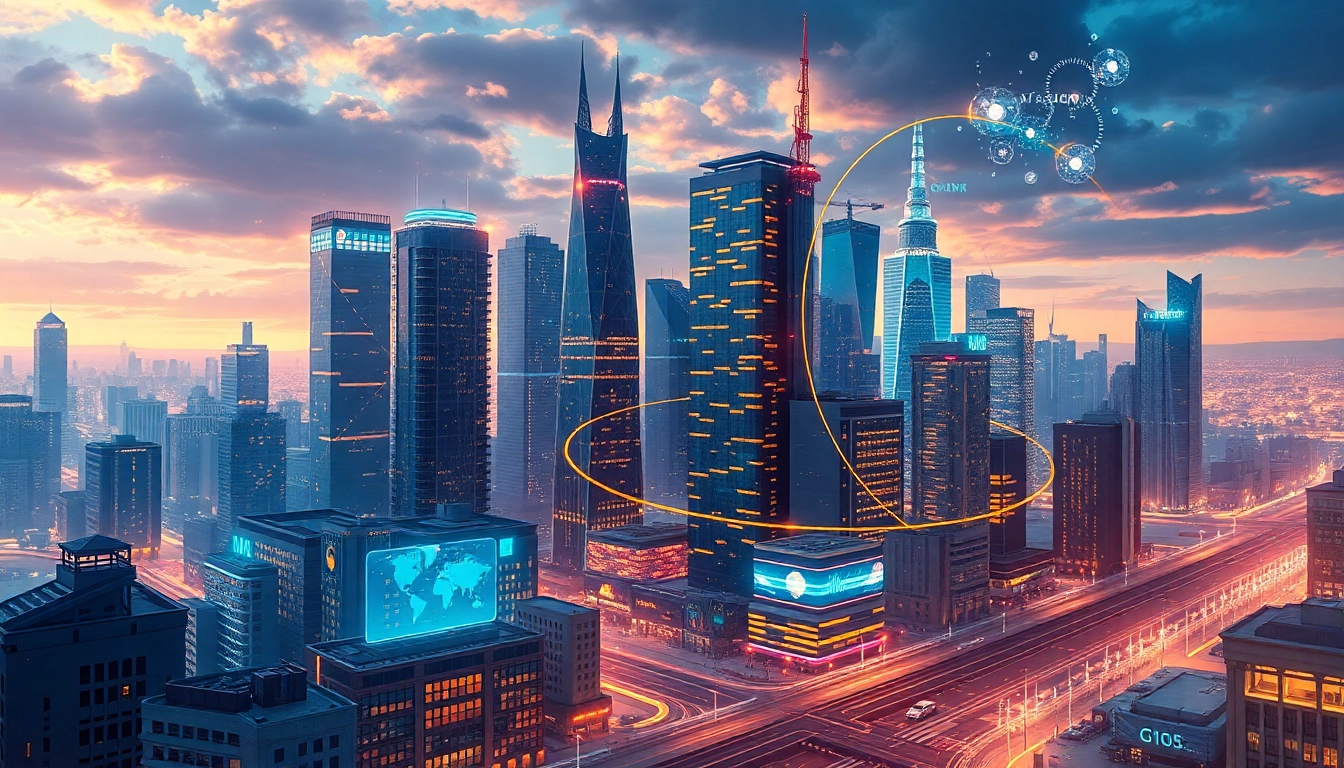In today’s rapidly evolving world, technology is the driving force behind innovation, economic growth, and societal change. From smartphones to artificial intelligence, technology shapes every aspect of our lives, offering new opportunities and presenting fresh challenges. But what exactly is technology, and how is it transforming the way we live and work? This comprehensive guide explores the essence of technology, its main types, societal impacts, emerging trends, and how it can promote a sustainable future.
What Is Technology? A Complete Definition
Understanding Technology: Basic Concepts
Technology refers to the collection of tools, systems, methods, and processes developed to solve problems, improve efficiency, or enhance human capabilities. It encompasses both tangible items like machinery and devices, and intangible elements such as software, algorithms, and procedures. At its core, technology is about applying scientific knowledge for practical purposes, transforming ideas into real-world solutions.
Historical Evolution of Technology
Throughout history, technology has evolved from primitive stone tools to complex digital systems. The Agricultural Revolution introduced innovations like plowing and irrigation, while the Industrial Revolution brought mechanization, transforming manufacturing and transportation. Today, the digital age is driven by advancements in computers, the internet, and artificial intelligence, shaping a new era of technological innovation.
Why Technology Matters Today
Modern technology is integral to economic development, healthcare, communication, and education. It enables globalization, increases productivity, and fosters innovation across industries. Moreover, technology is essential for addressing global challenges such as climate change, resource management, and public health crises. Its impact is pervasive, influencing societal norms and individual lifestyles alike.
Types of Technology: From Classic to Cutting-Edge
Information and Communication Technologies (ICT)
ICT encompasses tools that facilitate the creation, storage, and dissemination of information. This includes the internet, smartphones, cloud computing, and social media platforms. These technologies revolutionize how we communicate, access data, and conduct business, breaking down geographical barriers and fostering global connectivity.
Biotechnology and Medical Technologies
Biotech innovations include gene editing, biopharmaceuticals, and regenerative medicine. Medical technologies such as robotic surgery, telemedicine, and wearable health devices improve patient care and extend life expectancy. These advancements exemplify how technology can enhance health outcomes and quality of life.
Emerging Technologies: AI, Blockchain, and IoT
Emerging technologies are rapidly transforming industries:
- Artificial Intelligence (AI) and Machine Learning: Algorithms that enable machines to learn and adapt, powering applications from autonomous vehicles to personalized marketing.
- Blockchain: Decentralized ledgers ensuring transparency and security in financial transactions, supply chains, and digital identities.
- Internet of Things (IoT): Connected devices and sensors that collect and exchange data, facilitating smart homes, industrial automation, and predictive maintenance.
The Impact of Technology on Society
Economic and Business Transformations
Technology has driven unprecedented economic growth, creating new industries and disrupting traditional markets. E-commerce platforms, digital payment systems, and remote work tools have reshaped business models, enabling startups and established firms to operate more efficiently and reach global audiences.
Social and Cultural Changes
Digital innovation influences cultural norms, social interactions, and information dissemination. Social media fosters global communities, while instant communication alters relationships and societal expectations. However, it also raises concerns about privacy, misinformation, and digital addiction.
Environmental Considerations and Sustainability
Technological advancements can both harm and help the environment. While data centers and manufacturing contribute to carbon footprints, innovations like renewable energy tech, electric vehicles, and smart grids promote sustainability. IoT devices optimize resource use, reducing waste and supporting climate goals.
Future of Technology: Trends & Predictions
Artificial Intelligence and Automation
AI is expected to become more sophisticated, automating complex tasks across sectors such as healthcare, finance, and manufacturing. This will lead to increased efficiency but also raises questions about job displacement and ethical considerations.
Quantum Computing and Data Security
Quantum computing promises exponential processing power, revolutionizing data analysis, cryptography, and problem-solving. As data security becomes paramount, quantum-resistant encryption methods will emerge to protect sensitive information.
Smart Cities and Sustainable Tech
The future envisions cities equipped with IoT sensors, AI-driven traffic management, and renewable energy systems. These smart cities will aim to improve quality of life while minimizing environmental impact, aligning with global sustainability goals.
Frequently Asked Questions About Technology
What are the main types of technology?
The main types include information and communication technologies (ICT), biotechnology, medical tech, AI and machine learning, IoT devices, blockchain, and emerging fields like quantum computing.
How does technology influence daily life?
Technology impacts daily life through communication, entertainment, transportation, healthcare, and work. It enables instant access to information, remote work, online shopping, and social connectivity, making life more convenient but also raising privacy concerns.
What are the upcoming trends in technology?
Emerging trends include AI advancements, quantum computing, IoT proliferation, blockchain innovations, and sustainable tech solutions. These trends will shape industries and societal norms in the coming decades.
How can technology improve sustainability?
By enabling renewable energy solutions, smart resource management, and eco-friendly manufacturing, technology can reduce environmental impact. Innovations like green data centers, electric vehicles, and IoT-enabled conservation efforts support a sustainable future.
What is the role of AI in future tech?
AI will drive automation, enhance data analysis, and facilitate personalized experiences. It will play a crucial role in autonomous vehicles, healthcare diagnostics, climate modeling, and intelligent systems, shaping a smarter and more efficient world.
Conclusion
Technology is a dynamic force propelling humanity toward a brighter, more interconnected future. As digital innovation accelerates, understanding its types, impacts, and potential benefits is essential for individuals and organizations alike. Embracing emerging trends responsibly will be key to harnessing technology’s full potential while promoting sustainability and societal well-being. For ongoing insights into the latest in tech, stay connected with TechDee—your premier source for all things technology.
